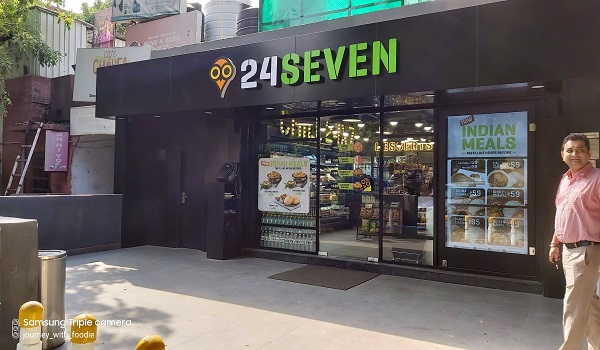Godfrey Phillips India recently disclosed its intention to divest the underperforming 24Seven convenience chain after a comprehensive review of its retail business arm. Negotiations with potential buyers, including Tata Trent, Reliance Retail, and Avenue Supermarts, are underway, with discussions revolving around valuation.
The leadership of the KK Modi Group, which backs Godfrey Phillips, has engaged in talks with entities exhibiting synergies with the retail chain. These negotiations are currently at various stages of progress, as indicated by an executive familiar with the matter.
Operating approximately 145 stores across the Delhi-National Capital Region (NCR), Punjab, and Hyderabad, 24Seven, established in 2005, offers a diverse range of products including groceries, staples, snacks, beverages, personal care items, and even features the Modi group’s Colorbar beauty brand. Despite facing accumulated losses, the format remains promising due to its blend of hyper-convenience grocery and general merchandise.
While Trent Ltd., the retail subsidiary of the Tata Group, operates Star Bazaar, grocery constitutes a relatively small segment of its overall retail portfolio. Reliance Retail Ventures, on the other hand, operates nearly 50 7-Eleven stores under a master franchise agreement and may explore integrating its convenience store chain with 24Seven. Avenue Supermarts, the operator of DMart stores, emphasizes grocery retail and aims to bolster its presence in this segment.
Samir Modi, Managing Director of Modi Enterprises, did not provide comments on the matter. Representatives of Tata Trent, Avenue Supermarts, and Reliance Retail declined to comment.
In the fiscal year 2022–23, Godfrey Phillips’ retail arm generated revenues of ₹396 crore, accounting for 9.3% of the tobacco maker’s total revenue. However, due to accumulated losses, the retail division reported a negative net worth as of March 31, 2023. Following stakeholder feedback and a review of long-term performance, market conditions, and business strategy, the company’s board decided to exit the retail business division.


